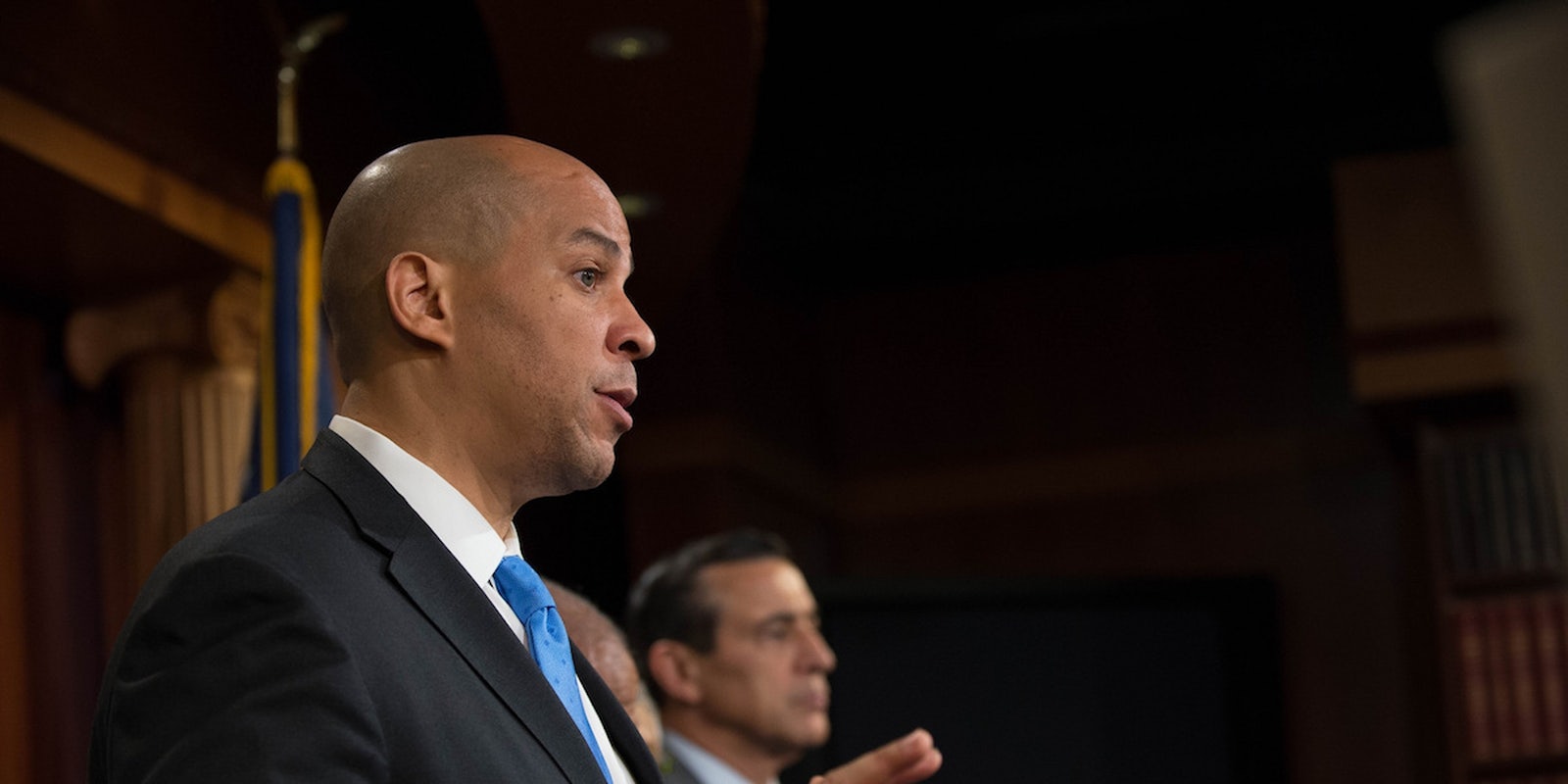A group of Democratic senators is calling on the Federal Communications Commission to update its Lifeline low-income phone-subsidy program to cover broadband Internet.
“We applaud the Commission for its extensive work to ensure the integrity of this program and tamp down on waste, fraud, and abuse,” the senators—including Cory Booker of New Jersey, Chris Murphy of Connecticut, and Chuck Schumer of New York—wrote in a letter to FCC Chairman Tom Wheeler. “Now, the time has come to update this program to ensure it keeps pace with the most ubiquitous form of modern communication.”
The FCC will vote on Thursday on Wheeler’s proposal to overhaul the Lifeline program and add a broadband subsidy. The chairman’s goal is to narrow the so-called “digital divide” by bringing more low-income Americans online.
The Lifeline phone-subsidy program, established in 1985, is considered a critical tool for connecting Americans with emergency services and job opportunities. Applicants must demonstrate that their income is at or below 135 percent of the federal poverty level or that they receive assistance from Medicaid, the Supplemental Nutrition Assistance Program (SNAP), or other state assistance programs.
“In 2015, Lifeline is still a successful program for ensuring all Americans have the opportunities and security provided by essential communications services, like connecting to emergency services, jobs, and family members,” the Democratic senators wrote to Wheeler.
The lawmakers noted that Americans increasingly rely on broadband Internet for education, employment, health care, and access to government and social services.
The Broadband Opportunity Council, established by the White House in 2015 and co-chaired by the secretaries of Agriculture and Commerce, reported that broadband access “has steadily shifted from an optional amenity to a core utility,” though millions of Americans still lack reliable access.
The digital divide, the broadband council said, is “better understood as a series of digital divides based on geography, income, and other demographic factors,” including “seniors, people with disabilities, those with less than a high school degree, and people with low income.”
One in three adults lack access to broadband Internet at home, the senators wrote in their letter, while one in five has “neither a home connection nor a smartphone.” Modernizing the Lifeline program, they argued, would “make critical strides in improving accessibility for these individuals.”
Wheeler argued in his draft proposal that the Lifeline expansion carried forward the mission that Congress had given his agency.
“Congress directed the FCC to ensure that all Americans have access to advanced telecommunications and information services,” the proposal said. “Now, Lifeline must evolve to meet today’s most pressing communications need: access to broadband.”
Photo via Senate Democrats/Flickr (CC BY 2.0)


